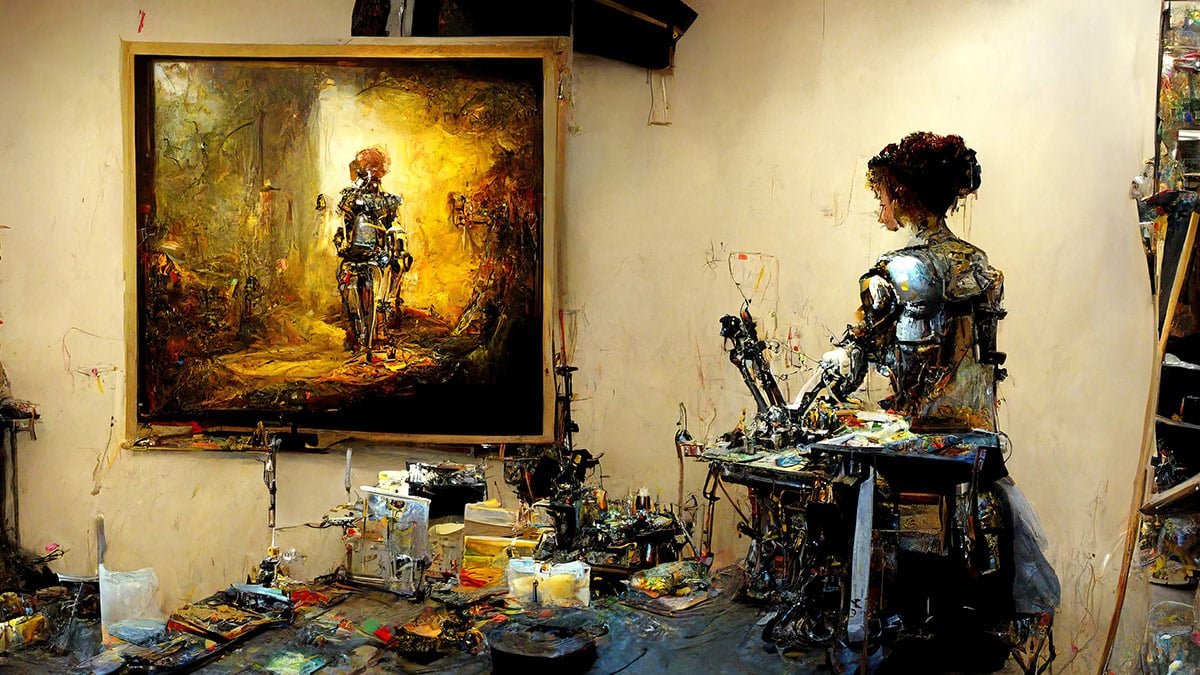“The limits of my language mean the limits of my world.” -Ludwig Wittgenstein, Tractatus Logico-Philosophicus (1922)
The line between science fiction and reality is blurrier than ever and the future is now. A few weeks ago, OpenAI, one of the world's most ambitious AI research labs, released a chatbot called ChatGPT-3 that can answer questions, explain concepts and merge ideas in clear, well-punctuated prose that makes sense to humans. ChatGPT has the potential to reinvent or replace traditional search engines and change the technological landscape in general.
Although there's room for improvement, many people think ChatGPT, which has ingested the entire Internet, is the tech industry's next massive disrupter. Even the management team at Google recently declared a "code red." ChatGPT-3 can do everything from writing songs and creating outfits, helping you save money by negotiating your Verizon bill, talking to service bots to help you get refunds from companies, and maybe outsourcing your job. Microsoft already invested in ChatGPT and some people say we may see the revenge of Bing.
After experimenting with ChatGPT, I realized that we're entering a new world where decisions will be made in three ways: by humans, by machines, and through the collaboration of humans and machines. If you're wondering how we got here, remember the role of AI in chess and the pharmaceutical world.
In 2017, AlphaZero, an AI program created by Google DeepMind, defeated Stockfish, the most powerful chess program in the world. AlphaZero wasn't a regular AI chess program. The chess programs before AlphaZero depended on moves uploaded by humans--that was the origin of their knowledge and strategy. The advantage they had was superior processing power.
However, AlphaZero was self-taught. AlphaZero trained for about four hours playing against itself and then became the world's best chess program. Humans gave AlphaZero the rules of chess and told the program to maximize its proportion of wins. AlphaZero had a logic based on pattern recognition regarding possible moves, even ones that human minds could never consider or deploy. Grandmasters said AlphaZero shook the game of chess to its roots.
So far, no human has ever defeated AlphaZero.
In 2020, researchers at MIT discovered a novel antibiotic that could kill strains of bacteria resistant to all antibiotics. Usually, research and development for new drugs is costly and painful and requires years. Researchers study thousands of possible molecules, experiment with trial and error, propose educated guesses, and narrow the options to a few viable candidates. Often, they create tweaks into existing drugs' molecular structure and hope to get lucky.
But that year, MIT collaborated with AI in the process. The AI studied the attributes of two thousand known molecules, learned which characteristics were predicted to be antibacterial, and identified features that were not encoded and ones that were outside human conceptualization. After the training, the AI surveyed 61,000 molecules, FDA-approved drugs, and natural products for molecules. The mission for the AI was to find molecules that would be effective as antibiotics that did not appear similar to any other antibiotics and something nontoxic.
The AI found one molecule out of 61,000, and the researchers named it halicin, giving a shout-out to the AI HAL in 2001: A Space Odyssey. The MIT project leaders suggested that this discovery may not have occurred without the assistance of AI. What's even more stunning is that after the discovery, humans could not describe why it worked precisely, which means the AI processed data more quickly and also noticed aspects of reality that humans could not see and understand.
A few months later, OpenAI introduced an AI named GPT-3 ("generative pre-trained transformer"). This AI is a model that responds to a prompt with humanlike text that can look like paragraphs, answers, background information, essays, and dialogue on any subject that has information online. Sometimes the response feels extremely human; other times, it sounds like nonsense. If you ask ChatGPT about thinking independently, it will tell you that it's a language model, not a reasoning machine like us.
What's interesting about AlphaZero, the discovery of halicin, and GPT-3 is that we're watching AI unveil imperceptible, vital aspects of reality in a short time compared to the human brain. We now have technology that masters subjects and provides results beyond the human mind's capacity. Machine learning has expanded everywhere, from medicine, transportation, environmental protection, law enforcement, defense, etc., and everyone knows this ubiquitous technology will revolutionize human affairs. Most likely, no field will be unaffected.
Image created by AI
We now have access to powerful, inscrutable technology that uses deep neural networks to elevate insights and innovations that have eluded the most incredible human minds. It will help us explore and organize reality by tapping into truths and non-human forms of logic we could not access before. But who knows how the evolution of AI will affect our culture, history, cognition, perception, and other types of human interaction?
In The Age of AI: And Our Human Future, Henry A. Kissinger, Eric Schmidt, and Daniel Huttenlocher say,
“Human intelligence and artificial intelligence are meeting and being applied to pursuits on national, continental, and even global scales. Understanding this transition, and developing a guiding ethic for it, will require commitment and insight from many elements of society: scientists and strategists, politicians and philosophers, clerics and CEOs.”
Nations and tech creators will have to define our partnership with artificial intelligence and the reality that will result and carefully consider the balance between the need for innovation and the need to address social and ethical concerns surrounding new technology.
In other words, we need them to imagine that this sort of technology is from an episode of Black Mirror and consider the implications around safety, color, women, and misinformation at a level we've never seen before. In the future, it may be more difficult for people to deduce what's real, human, and autogenerated.
Award winning Image created by AI
I am confident that delegating mundane tasks to AI will give us more time to think conceptually and expand our knowledge. Sooner or later, we will probably be able to create an AI twin that can talk and behave just like us and outlive us. This sort of AI in the future can introduce us to new types of expertise and propel us into a new reality, a new mode of thinking that's different from the Enlightenment because there's no required chain of connection between ideas. We may need a new philosophy if AI continues to give us answers without the same progression of human logical notions between ideas.
One of my fears is that people stop thinking. We already see that 70 percent of the time people spend on YouTube is following recommendations driven by artificial intelligence. Sometimes I wonder if we're moving toward knowledge or if knowledge is receding from us. How will this revolution wrought by AI affect our free society, and will free will be altered if people become overly dependent on computers? Will some governments use AI systems to tailor and distribute political messages influencing how various demographics adopt political and philosophical ideologies? So many questions come to mind about how reality could diverge in unpredictable ways, especially in the context of national security and entrusting machines to shape our options.
This new reality and revolution can expand human capacity and accelerate learning. Hungary has already created its language model so that the Hungarian language remains relevant in the digital space. China and Russia are focusing on digital networks' dilution of communal and national identity. Every government will deal with the risks of anarchy and oppression in its unique way, and who knows if there's still a chance to create global standards when controlling disinformation and global network platforms.
Our reverence for AI looks close to mysticism. Still, inherent risks have remained, and we will have to probe every language model's weaknesses, biases, and limitations, especially if a few models dominate and create a technological monoculture. Nonetheless, the human mind isn't traveling alone anymore. We're accessing new vistas, and more unattainable goals will now be reachable. That can mean we mitigate more natural disasters, develop a more profound knowledge of mathematics, better understand our universe, and advance the human relationship with reason and reality.
Disruption and transformation always lead to new opportunities and this new revolution demands preparedness from our philosophical and societal institutions. The next phase will involve reconciling this new technology with our values, structures, and social contracts. We live in an era of unprecedented disruption, but we have the chance to reach significant achievements in health and economics and enter the age of abundance.
Image created by AI




